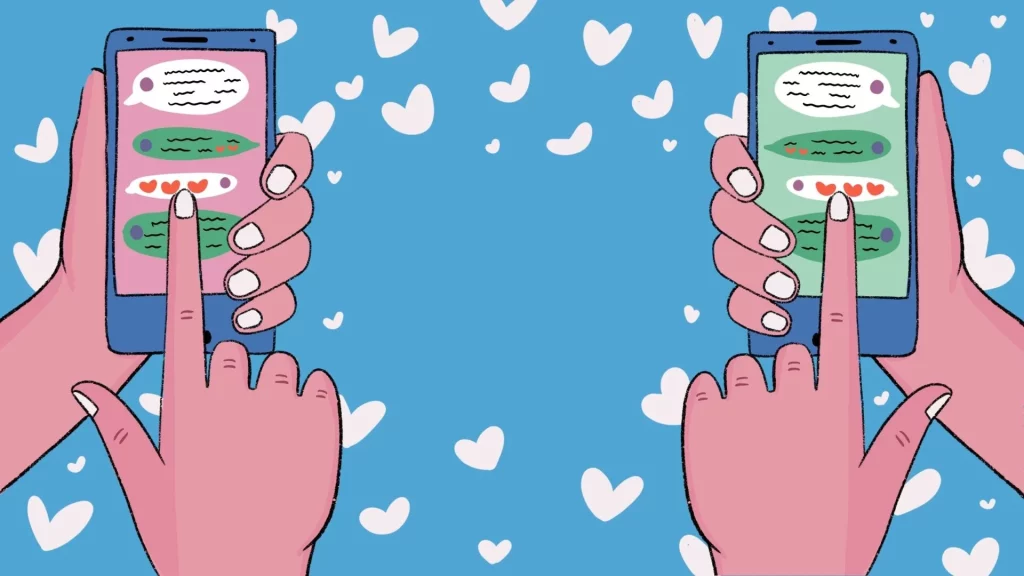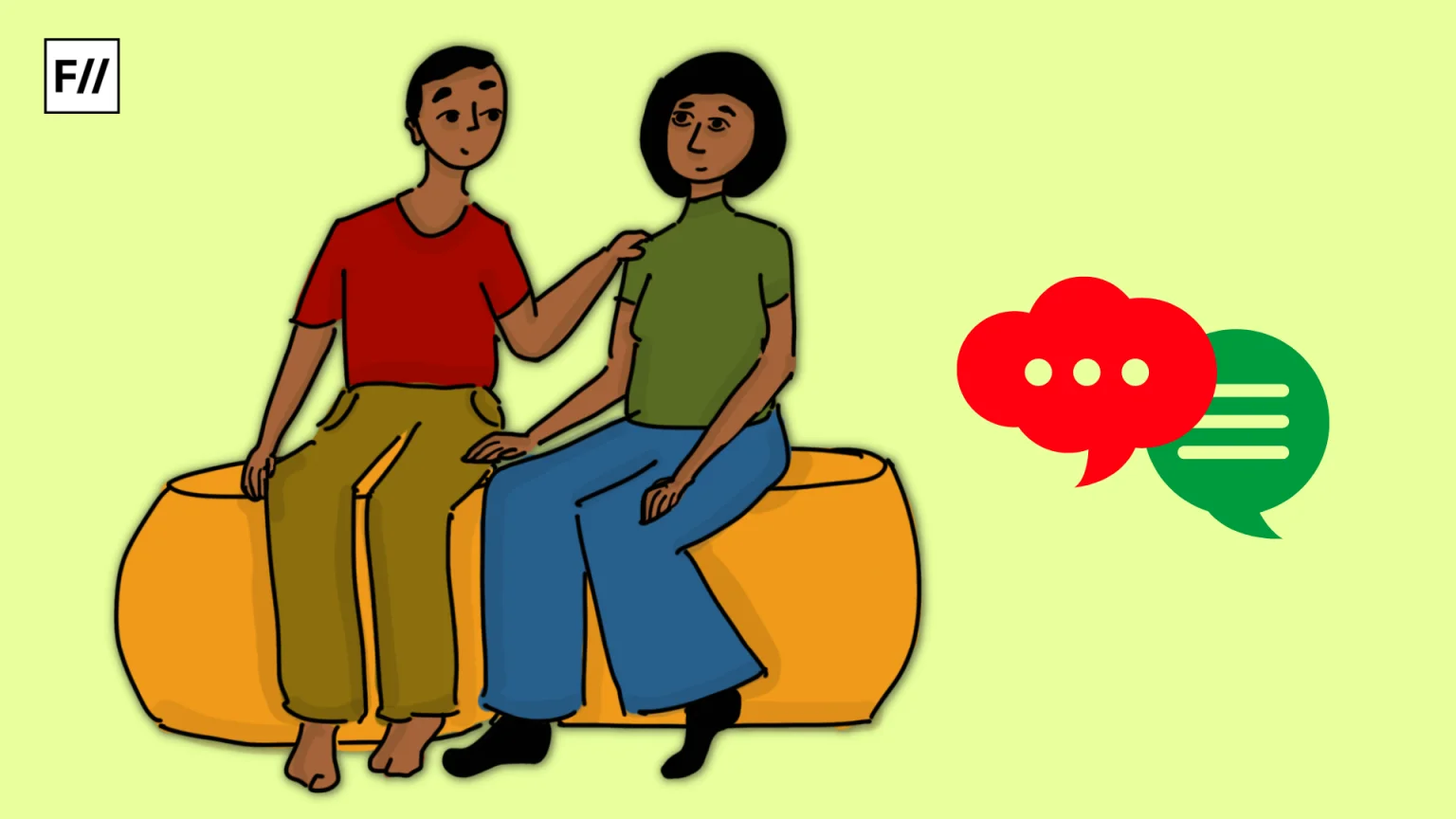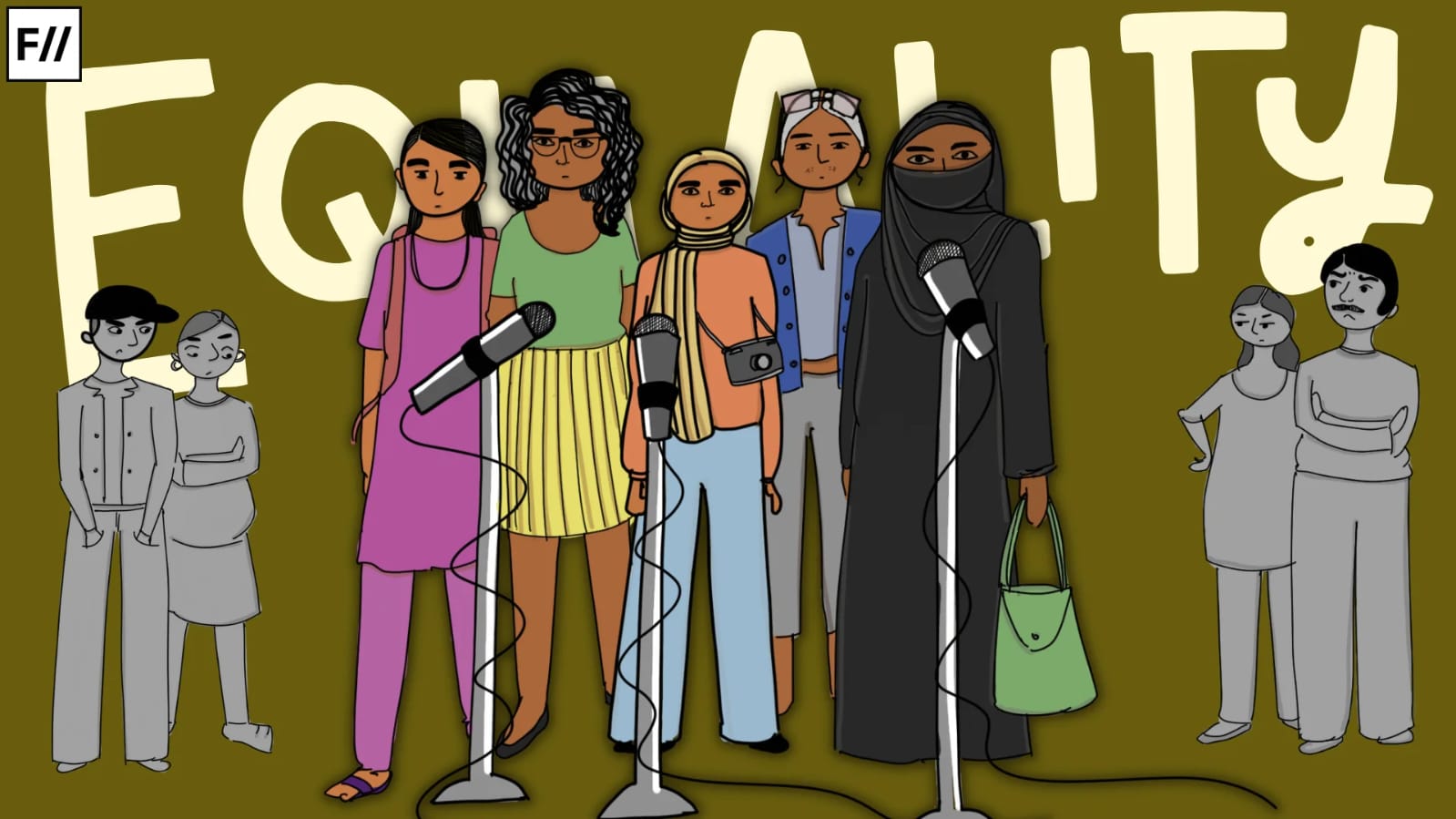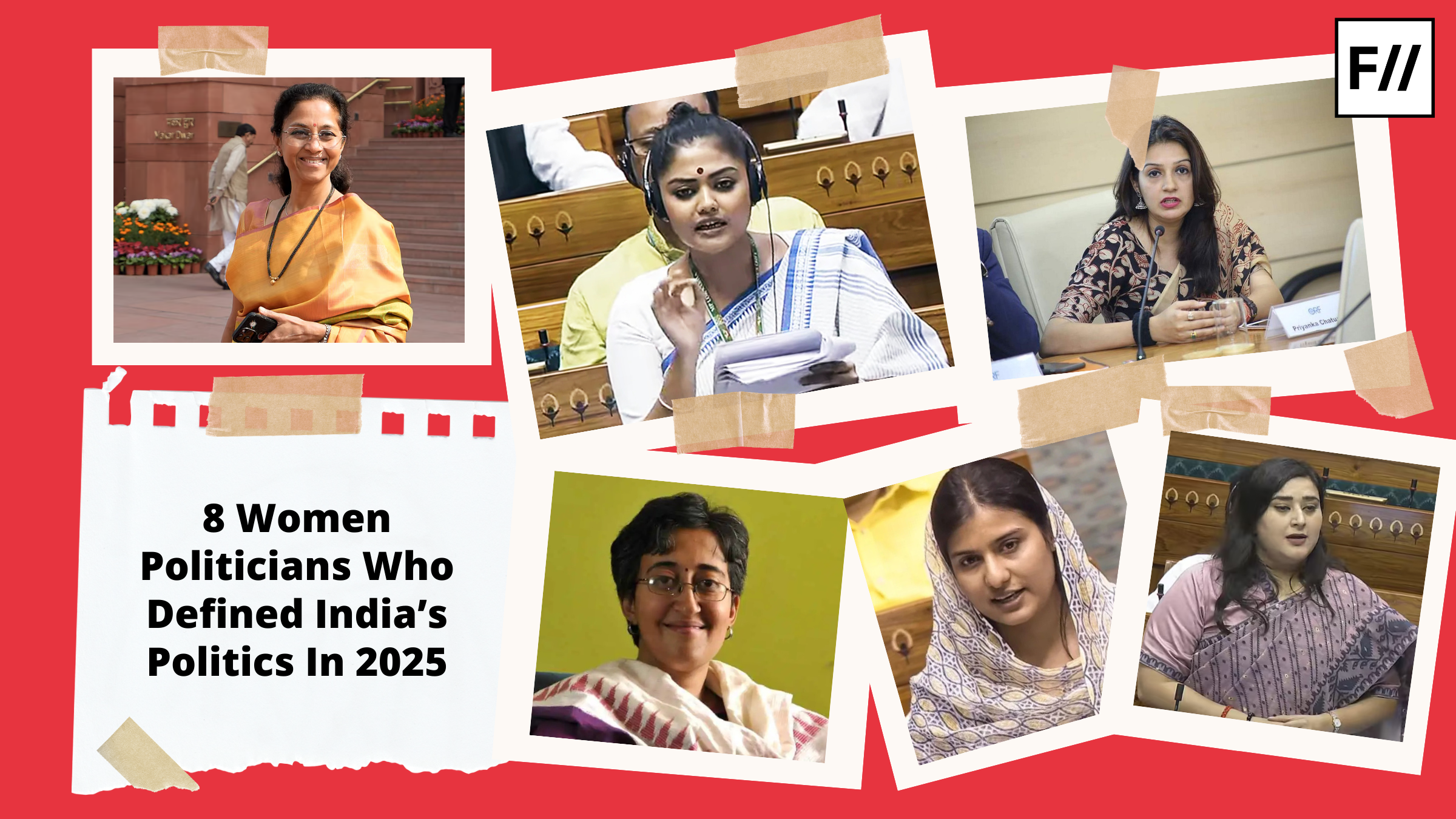‘Some men are red flags wrapped in green flag dressing,’ a Reddit user wrote on r/TwoXIndia — an online community for Indian women — in November 2024. At a Diwali party, this woman overheard her long-time friend — a suave, well-educated man from IIM working at a top tech firm — bragging about using ‘green flag’ behavior to lure and dump women. Believing she was asleep, he and his friends mocked a former classmate’s weight, fetishized women with irregular menstrual cycles (PCOS) as disposable sex objects, and casually mapped out a strategy of performative feminism — in reality, a hidden misogynistic trap of ‘wokefishing’: act respectful, sleep with women, and then marry a ‘homely girl’ picked by one’s parents. Turns out, the man who always had seemed like a respectful ally to her was, in truth, just another misogynist in a feminist hoodie. ‘Just warning you girls that if a guy behaves green flag doesn’t mean he actually is,’ she concluded.
How men began cosplaying as feminist
In the aftermath of #MeToo, therapy discourse and feminist language found their way into India’s urban mainstream. Dating apps, memes, and online communities began buzzing with talk of emotional labor, boundaries, toxic masculinity, and safe spaces.

While many women felt hopeful, seeing their concerns validated and understood, unbeknownst to them, a new kind of predator had begun quietly taking notes: these were not the men who laughed off feminism or mocked ‘snowflakes;’ they were the ones who attended workshops on allyship, nodded earnestly at panels on patriarchy, and followed feminist influencers on Instagram. They knew all the right things to say, and that’s exactly what made them harder to detect.
Across metros and mid-sized cities in India, young women are increasingly reporting encounters with men who use the language of progressiveness as a performance — while continuing to act in ways that harm, exploit, and manipulate. ‘I met this guy online during the lockdown. He mentioned that he was a climate warrior, and that greenery and sustainability defined his life. But a week later, when I casually spoke about how climate and sustainability needed to be subjects in college, he scoffed at that. I think he forgot that he had mentioned these things as being important to him. At first, I was confused, but then I realised that he might be masquerading about a lot of other things,’ an Indian woman said in 2020, recalling her tryst with being ‘wokefished.’
Rise of ‘wokefishing’
‘A wokefish may at first present themselves as a protest-attending, sex-positive, anti-racist, intersectional feminist who drinks ethically sourced oat milk… But in reality, they don’t give a shit. Or, as is often the case, they are actively the opposite in their personal lives. It’s sort of like catfishing, but specifically with political beliefs,’ explains Serena Smith, who is credited with coining the term. ‘Wokefishing,’ put simply, is when people masquerade as holding progressive political views to ensnare potential partners.’
A wokefish may at first present themselves as a protest-attending, sex-positive, anti-racist, intersectional feminist who drinks ethically sourced oat milk… But in reality, they don’t give a shit. Or, as is often the case, they are actively the opposite in their personal lives.
In short, it’s political catfishing. The performative ally — or as the internet might call him, the ‘softboi sociopath’ — is a structural feature of modern dating; think: Joe Goldberg (played by Penn Badgley) from Netflix’s You.
The weaponization of feminist and therapy terms by men isn’t new globally, with words like ‘gaslighting,’ ‘trauma,’ and ‘triggering’ having entered popular discourse. A man talks about respecting boundaries, but persistently pressures his partners into sex. He praises their strength as women but makes backhanded compliments about their ‘emotional instability.’ He shares infographics about consent — and then ghosts them after getting what he wanted.
‘Wokefishers may try to impress you with buzzwords or slogans without truly comprehending their meaning or only having a surface-level understanding of complex issues such as systemic oppression or privilege. They may only engage in superficial activism,’ explains an article in Forbes.
Therapy-speak as a tool for gaslighting
In India, though, where talking about feelings is still seen as radical in many circles, the shift is more recent. Just last month, speaking of men in the movie industry, actor Malavika Mohanan said, ‘[M]en have really gotten smart… in the last 5-6 years, they know how to put on the mask of being woke. They know exactly what lines to say that make them come across like a feminist, as a very forward-thinking person, someone who treats women as equals. And I have seen them go back from the public eye and become the most misogynistic person ever.’ This aligns with what researchers call ‘benevolent sexism’ — sexism that cloaks itself in seemingly positive attitudes.

But the woke predator is even more insidious. He often punishes women with the language they believed would protect them. Picture this: a woman tells her partner that his actions make her feel unsafe or manipulated, only to have him respond with emotional gaslighting in therapy-speak — like, ‘I think this is your trauma response talking,’ or ‘I feel like you’re projecting unresolved issues,’ or ‘It sounds like you’re not regulating your emotions.’ In an age where self-awareness is prized, these men turn therapy language into a silencing tactic — flipping the narrative so that the woman feels like the problem. The damage is slow and subtle: when one is met with ‘healing’ language to invalidate their experiences, one might end up questioning one’s very reality.
A dating profile is a performance
Dating apps — especially those that brand themselves as spaces for respectful, intentional dating — can enable this behaviour by providing men with the tools to manufacture a persona. A guy who lists himself as ‘feminist,’ ‘pro-choice,’ ‘emotionally available,’ and ‘into therapy’ will automatically get more matches. And so, this curated wokeness becomes part of a strategic identity — not unlike resume padding.
Dating apps — especially those that brand themselves as spaces for respectful, intentional dating — can enable this behaviour by providing men with the tools to manufacture a persona. A guy who lists himself as ‘feminist,’ ‘pro-choice,’ ‘emotionally available,’ and ‘into therapy’ will automatically get more matches.
‘This person I came across on a dating app had a cool profile and his bio mentioned that he is a feminist and an advocate for human rights. I liked that and as we got chatting, we started to discuss the “Black Lives Matter” issue. But he didn’t seem to know anything about it. After a little bit more of conversation, I realised that he actually wasn’t aware of any of these issues,’ yet another Indian woman told The Times of India. These men don’t catcall. They don’t shout. They often don’t even raise their voice. Instead, they invalidate subtly, exploit emotionally, and withdraw affection strategically. And throughout, they maintain plausible deniability.
The cult of progressive spaces
What makes this even murkier is the complicity of peer groups. Many of these men are in social justice circles, queer-affirmative collectives, or even therapy groups — places where progressive men are often lionized.

Speaking of a male friend she once considered a “solid ally” — only for him to be accused of having emotionally and sexually abused his exes — a woman wrote, ‘He’d used his sex-positive feminist rhetoric to win their trust. He’d gradually razed their self-esteem with small, barbed body-shaming comments. He’d coerced verbal consent from them to perform sexual acts they didn’t want, because feminist doctrine says you need a “yes” or it’s rape. He’d isolated them from their social spheres by telling them he worried about their safety because other men were dangerous. And all the while, he’d gaslit them into thinking this was all normal, by shrouding his every word, his every move, in a veil of feminist theory.’
The fallout of such manipulation is profound. People dating such men can end up feeling isolated, ashamed, and anxious about speaking up — especially because the abuser is so “liked” by others.The same writer, who had also been in a casual sexual relationship with this former friend, had in fact, failed to realize he was abusive to her, too. ‘Though I’d escaped some of these abuses simply by virtue of being a casual partner and not a romantic one, my conversations with his exes helped me reflect on my encounters with him and see that he had, indeed, manipulated me. His feminist bombast outside of the bedroom convinced me his violations must merely have been mistakes,’ she added.
Wokefishing: from performative to predatory
Cognitive dissonance plays a huge role in why so many women fall for such men. When someone who claims to be progressive shows glimpses of care, we want to believe them. When they then cause harm, we struggle to reconcile those two conflicting realities — often blaming ourselves instead. And evidently, it doesn’t take too long for performative to morph into predatory. According to the Forbes article, asking questions — like, ‘Why are they interested in the cause? What did they learn from their involvement in the cause? Do they wish they were doing more for the cause? If so, what steps are they taking to get to where they want to be?’ — can help one avoid being wokefished.
It’s important to not only listen to what people say, but also pay close attention to how they behave over time. Are their actions consistent with their claims? Do they uphold these values when no one is watching — especially when the stakes aren’t performative, but personal?
In many ways, this is just a modern version of pretending to be someone else to get laid — only now, it comes wrapped in activist lingo. Feminist language was meant to liberate. Therapy discourse was meant to heal. But when wielded by the wrong people, these tools become weapons to confuse, manipulate, and control. As women in urban India continue navigating a dating landscape full of green-flag façades, it’s crucial to sharpen our collective lens.
About the author(s)
DevRupa Rakshit is an independent journalist and communications professional at work, and a storyteller and artivist at heart. She's autistic, ADHD, and lives with cats!





